Background – the story behind establishment of RUSTIC
Bangladesh has been on the United Nation's Least Developed Countries list since 1975. In 2020, the estimated total population of the country is 167.56 million. Among them, 49.43 million people are now in poverty according to the latest data. The population living below the national poverty line dropped to 20.5% in 2019 from 24.3% in 2016. But, the country’s national poverty rate rose to 29.5% as of June 2020 due to Covid-19, which cost tens of millions of people their jobs and brought them down below the poverty line.
The Khulna region, including Bagerhat, is located in the remote southwestern part of the country. Since 2004, these coastal people have been witnessing devastating cyclones like Sidr, Bijli, Reshmi, Aila, Nargis, Mahasen, Bulbul, Amphan, and Yaas. It also stands at a distance from the economic hub of Dhaka. As a result, the nation is vulnerable to socio-economic conditions. Disasters, both natural (the environment) and man-made (the economy) are the root causes of the issue.
Despite enormous possibilities (The second-largest sea-port situated in Khulna division), rampant and non-stop de-industrialization adds fuel to the worst scenario. At least 230 large and small industries shut down or called lay-offs in the region in the last two decades. This dealt a heavy blow to an already under-employed population, especially for the urban or pro-urban populations.
Attempts to increase the agricultural yield and protect human settlements from the cyclone and tidal surge embankments led to the construction of the Coastal Embankment Project (CEP). Yet since the 1960s, this government intervention has had an adverse impact on one of the most complex and biologically productive ecosystems in the world; almost permanent drainage congestion and waterlogging have endangered traditional agriculture and livelihood in the region. Moreover, much of the agrarian land is becoming permanently or partially barren because of saline water due to the indiscrete cultivation of so-called shrimp and shrimp-fish polycultures.
Since 1988, social activists began raising awareness, giving suggestions, and providing financial, technical, and mental support in order to find a possible solution to the population’s problems. A group of young enthusiasts intended to establish a formal, legal and workable organization to ensure safe water and sanitation, conserve biodiversity, enhance human rights, and eradicate illiteracy, superstition, and hypocrite religious fundamentalism from society. Therefore, RUSTIC emerged as a voluntary social development organization for the helpless to establish themselves financially, socially, and culturally. RUSTIC targets the poorest of the community irrespective of race, caste, or creed for integrated development.
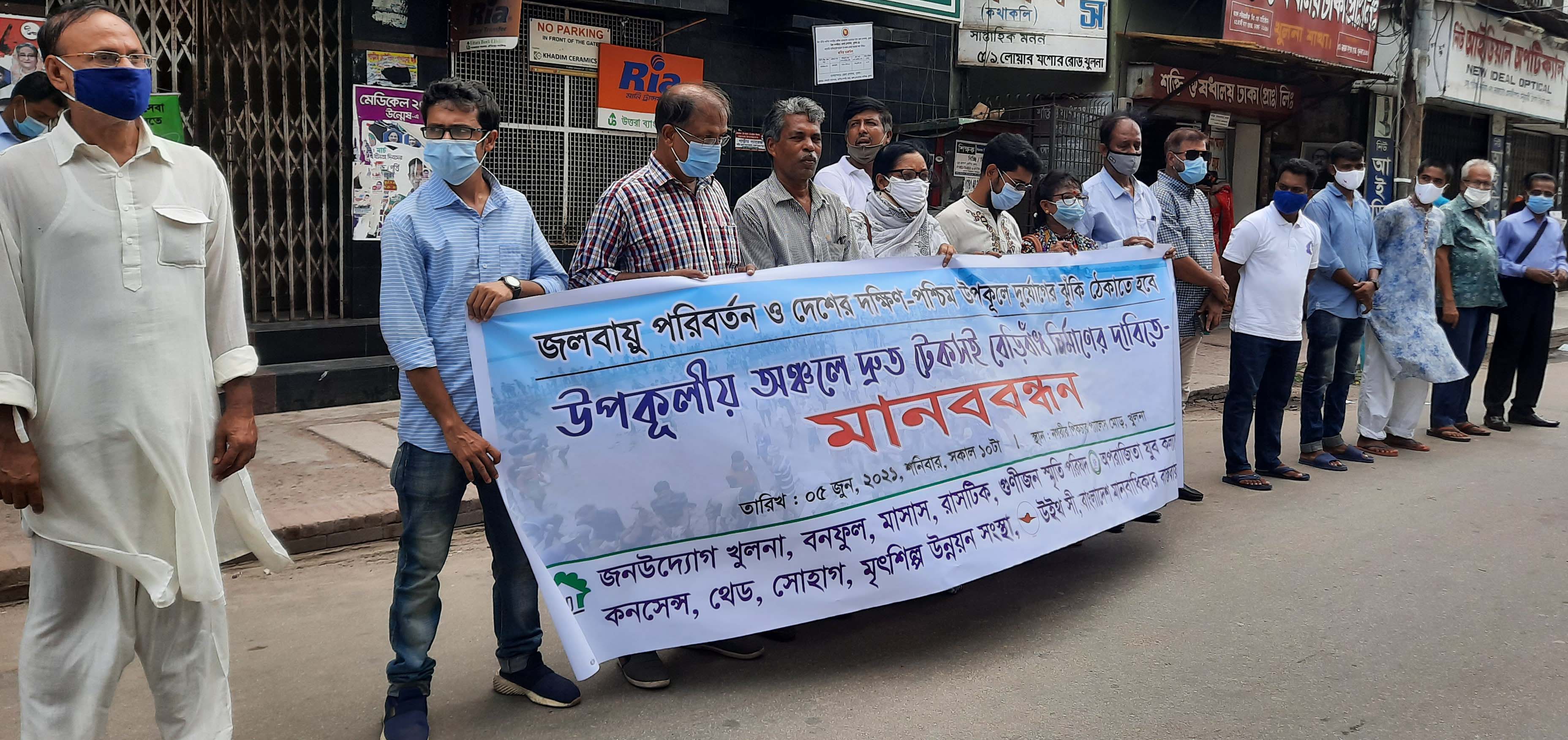 World Environment Day
World Environment Day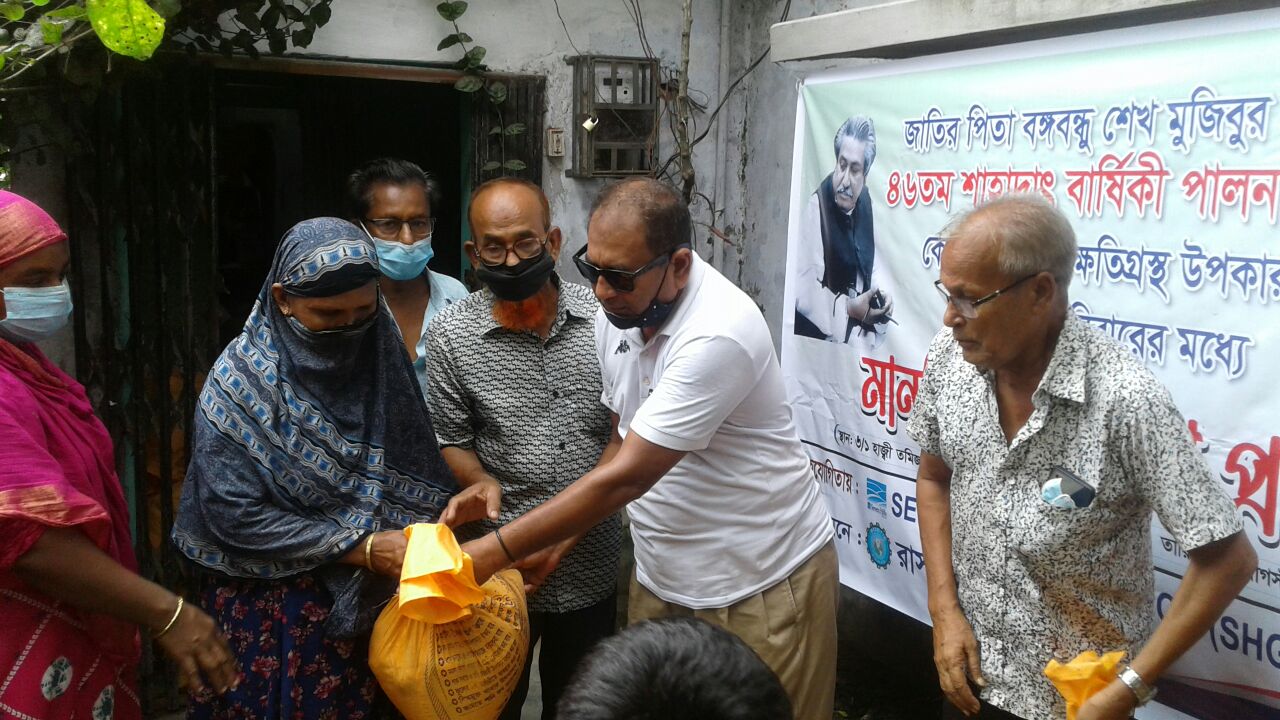 Food distribution for the disadvantaged community
Food distribution for the disadvantaged community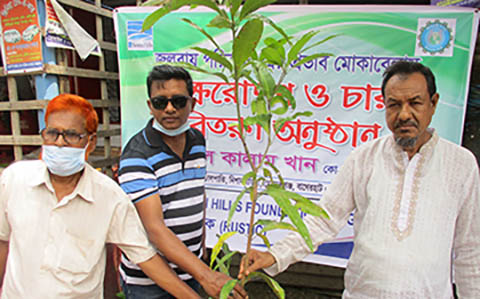 Tree Plantation for a green future
Tree Plantation for a green future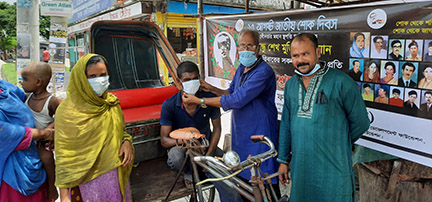 Distribution of personal safety materials to the disadvantaged community
Distribution of personal safety materials to the disadvantaged community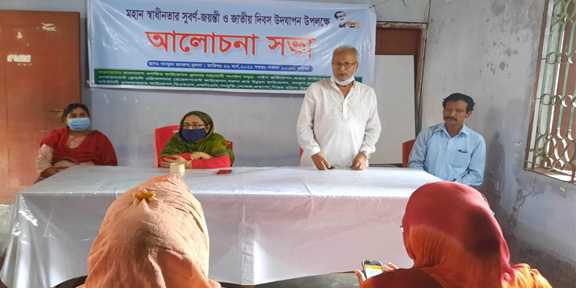 Observance of national days with the disadvantaged community
Observance of national days with the disadvantaged community